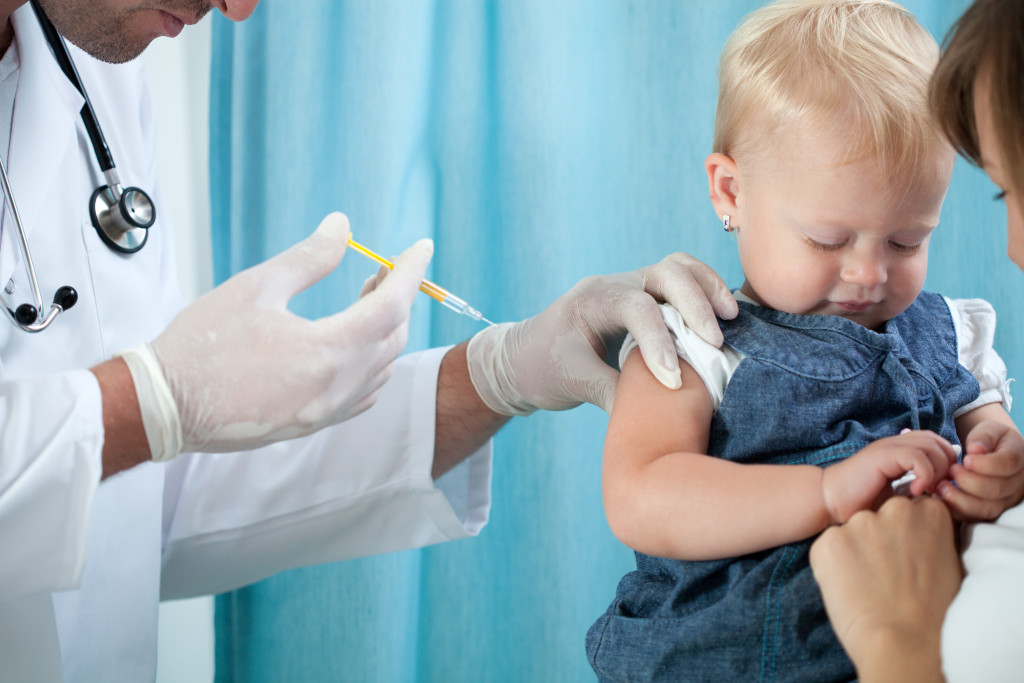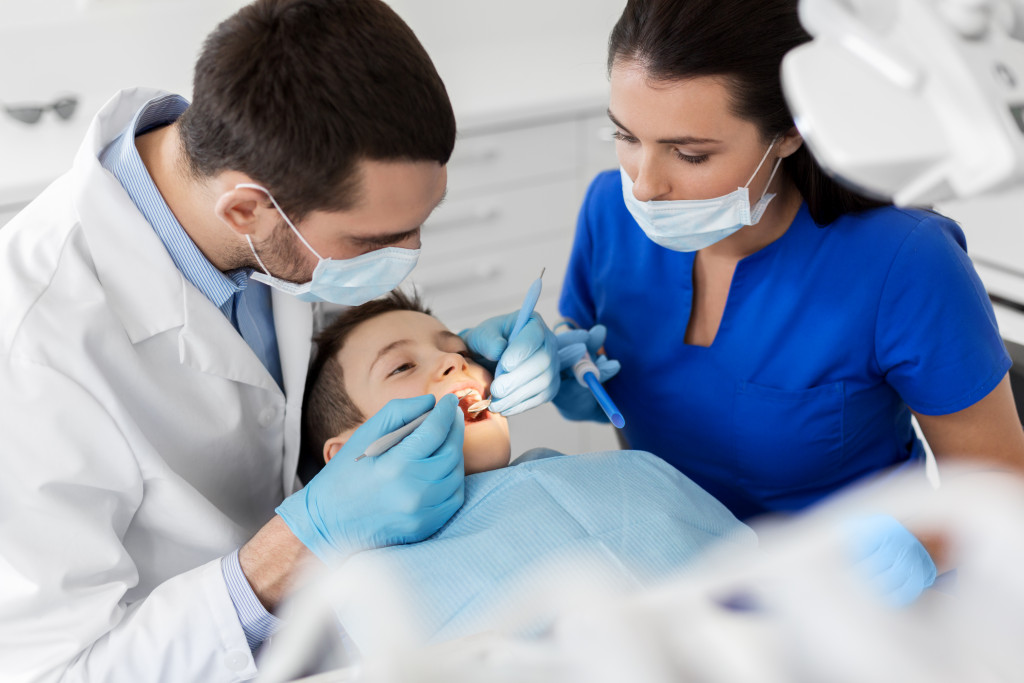- Vaccinations are essential for protecting children from potentially life-threatening diseases.
- All children should receive flu shots, polio, measles, and chickenpox vaccinations.
- Dental care is necessary to maintain teeth in the long term.
- Regular pediatric checkups help monitor growth and development and diagnose underlying illnesses.
- Parents should stay informed on the latest healthcare recommendations to keep their children safe and healthy.
When it comes to the health of your child, it is essential to take their well-being into account for them to reach their fullest potential. A child’s physical, mental, and emotional health is integral to helping them develop into successful, healthy adults. Children are rapidly learning and growing from birth, with much of this growth stemming from their experiences and the decisions made regarding their health.
Recent studies have found that the first five years of a child’s life can significantly influence their long-term success, so providing them with quality healthcare is essential in promoting positive development. Poor health throughout childhood can lead to severe implications such as diseases, disabilities, and even death, so it is necessary to keep up with their developmental needs. The Centers for Disease Control & Prevention (CDC) statistics found that 26% of children aged 2–17 had at least one chronic condition, such as asthma or obesity, and 8% had two or more. These statistics emphasize the necessity of being aware of preventive care and monitoring children’s overall development to reduce such illnesses.
Parents must consider several aspects of their child’s health when making decisions regarding care. Here are a few steps to consider.
Vaccinations

The importance of vaccinations for children cannot be overstated. Vaccinations are essential to protect their health and development from potentially life-threatening diseases. Vaccines stimulate the production of antibodies, which help the body fight off illnesses and infections. This is especially important for children as they have an immature immune system that cannot independently respond appropriately to specific pathogens.
Below are four essential vaccinations every child should receive:
Influenza (Flu Shot)
The flu shot is designed to protect against influenza virus strains, which cause seasonal epidemics each year that can lead to hospitalization or death. The CDC recommends everyone over six months of age receive a yearly vaccine, with high-risk groups such as pregnant women, young children, and seniors receiving it first. It is also essential for family members of these individuals to get one to mitigate the potential spread of the virus.
Polio
Polio is an infectious disease that causes paralysis and disability if left untreated. Fortunately, due to vaccination efforts beginning in 1955, polio has been eliminated from the US since 1979 and in most other countries worldwide due to mass immunization campaigns such as “PolioPlus,” run by Rotary International. The most commonly used vaccine is a live attenuated version called OPV (Oral Polio Vaccine), administered orally rather than injected.
Measles
Measles is a highly contagious viral infection that can cause severe complications, including blindness, deafness, or even death, if not treated early enough with vaccination or other medical interventions. Its prevalence has decreased significantly since mass vaccination campaigns began in 1963; however, it still occurs in some populations, so protection through MMR (Measles Mumps, Rubella) vaccine is essential for children 12–15 months old, followed by another dose between four-six years of age.
Chickenpox
Chickenpox (also known as varicella) can cause severe skin sores leading to infection and scarring if left untreated. This disease was declared eliminated from the United States in 2000 thanks mainly due to increased immunization rates with the Varicella vaccine since 1995 across different states throughout America; however, recent outbreaks have occurred amongst unvaccinated individuals, so being vaccinated remains essential for prevention against it in both adults and kids alike regardless of previous exposures through contact with chickenpox patients or otherwise.
Dental Health

It is essential to take care of your teeth. Eating healthy foods and brushing their teeth with toothpaste can help keep them healthy. Going to the dentist regularly will help you stay on top of any potential dental problems. The dentist may also give you fluoride, which helps protect your teeth from cavities and other issues. Taking care of your dental health now will keep your smile bright for a long time.
Getting braces might also be necessary once baby teeth have fallen out. Braces help keep the jaws and teeth aligned, preventing future dental issues. Orthodontists often recommend braces for children aged seven or eight to get them ready for their adult teeth.
Pediatric Checkups
It is essential to take your child for regular checkups with a pediatrician. The doctor can monitor growth and development, as well as provide guidance on nutrition, sleep schedules, physical activity, and other lifestyle modifications that may be beneficial. In addition to this, they can also diagnose any underlying medical issues or illnesses before it gets worse. This is especially important in the first five years of life when most of a child’s growth and development occurs.
Furthermore, pediatricians can administer vaccines during these visits to keep your child up-to-date with their health needs according to current guidelines from the CDC or local authorities.
Final Thoughts
Caring for your child’s health requires understanding their specific needs and taking steps to protect them from potential illnesses. Vaccinations, dental care, and regular pediatric checkups are all critical components that help promote overall growth and development in children. As a parent or guardian, it is essential to stay informed on the latest recommendations from healthcare professionals to ensure that your child remains healthy and safe. By following these steps, you can help pave the way for a successful future for your little one.
